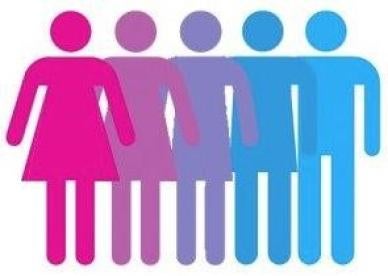While gender identity is not expressly protected under Title VII of the Civil Rights Act of 1964, an increasing number of states, cities and counties are enacting or amending their anti-discrimination laws to prohibit discrimination against transgender employees. For example, the New York City Human Rights Law provides that it is unlawful to discriminate on the basis of a person's gender and defines "gender" to include "a person's gender identity, self-image, appearance, behavior or expression, whether or not that gender identity, self-image, appearance, behavior or expression is different from that traditionally associated with the legal sex assigned to that person at birth." While New York State's analogous Human Rights Law does not in itself contain provisions that expressly identify gender identity as a protected characteristic, the New York State Division of Human Rights recently adopted regulations that define discrimination and harassment against transgender people as discrimination on the basis of sex. In California, the Fair Employment and Housing Act prohibits harassment and discrimination in employment because of, inter alia, sex, gender, gender identity, gender expression and sexual orientation. The Illinois Human Rights Act, which prohibits discrimination based on sexual orientation, recognizes claims that include "gender-related identity, whether or not traditionally associated with the person's designated sex at birth." Joining these and other states, Washington, DC amended its Human Rights Act to include gender identity as a protected class.
In the absence of a comparable federal law explicitly barring discrimination based on sexual orientation and/or gender identity, the U.S. Equal Employment Opportunity Commission (EEOC) has filed several claims pursuant to Title VII taking the position that the law’s prohibition against gender discrimination permits claims based on gender identity. In April 2015, the EEOC took the position for the first time in Lusardi v. McHugh that a male-to-female transgender employee faced illegal sex discrimination when she was told that her use of a common women's restroom was making coworkers uncomfortable and that she should use a unisex bathroom instead. Then, in June 2015, the EEOC filed suit in federal court in Minnesota against an employer, Deluxe Financial, that allegedly refused to allow a transgender employee to use the restroom of the gender with which she identified. According to a recent press release, the case settled for $115,000. Meanwhile, the Eleventh Circuit Court of Appeals, in Chavez v. Credit Nation Auto Sales LLC, recently held that a Title VII case must proceed to trial to determine whether gender bias was a motivating factor behind an employer's decision to terminate a transgender employee for sleeping on the job. These cases are a clear indication that every employer, including those in states that do not treat gender identity as a protected characteristic, should take care when dealing with transgender employees as well as any employee who does not conform to traditional gender roles.
Presumably, avoiding disparate-treatment claims surrounding the hiring, promotion, compensation, discipline and/or discharge of transgender employees will not unduly vex most employers; the spate of new laws and reinterpretation of old laws simply adds another protected class of which to be cognizant. While some employers may struggle initially in their efforts to ensure that individuals are not subject to different terms of employment because of their actual or perceived status as a transgender person, those that take proactive measures—such as determining how to handle restroom access—should fare well when the issues actually arise. In the end, cases may turn on less obvious matters such as coworkers (or even managers) refusing to use a transgender employee's preferred name, pronoun and/or prefix, as such unaddressed forms of disrespect may tip the scale against an employer. Further, refusing access to a bathroom or imposing grooming standards based on an employee’s biological sex or gender will undoubtedly be cited as examples of discriminatory intent.1
Going forward, employers should review their policies and update them as needed to ensure that gender identity is included as a protected characteristic. To the extent EEO training is provided—and we certainly recommend that you do—it should include a segment on transgender employees, addressing issues such as bathroom usage, dress code and the use of the transgender employee's preferred name and pronoun.
1 Some local laws, such as the New York City Human Rights Law, prohibit requiring any different uniforms or grooming standards based on sex or gender. Under federal law, differing standards based on sex or gender are permitted as long as they do not impose an undue burden.



 i
i

